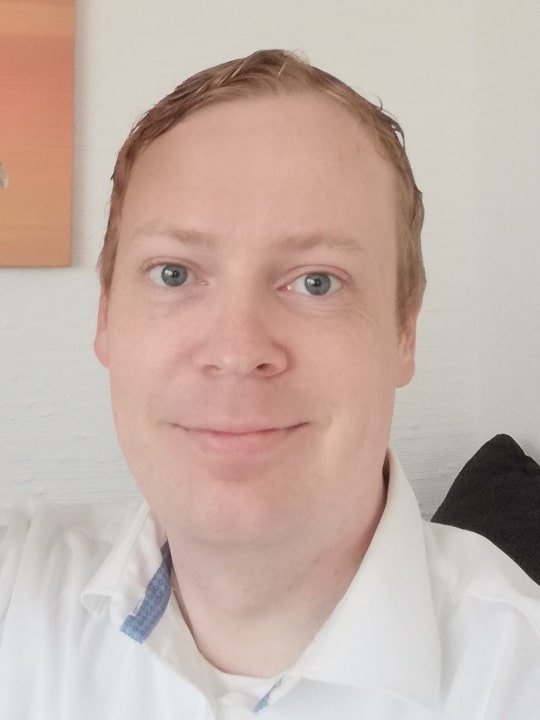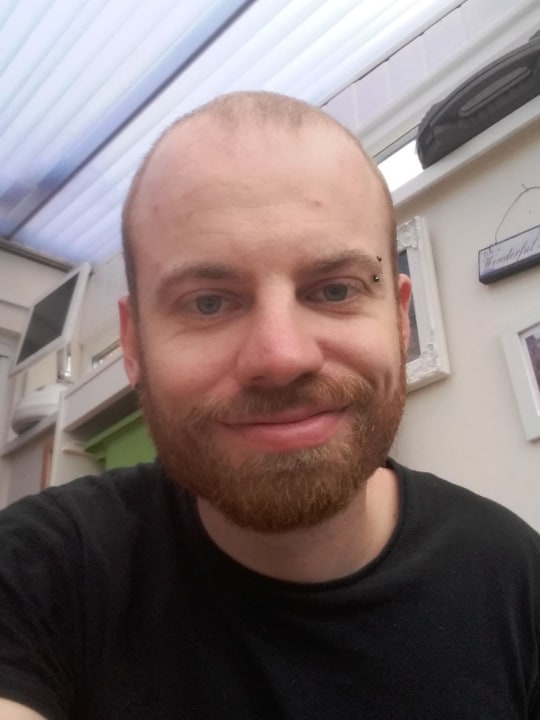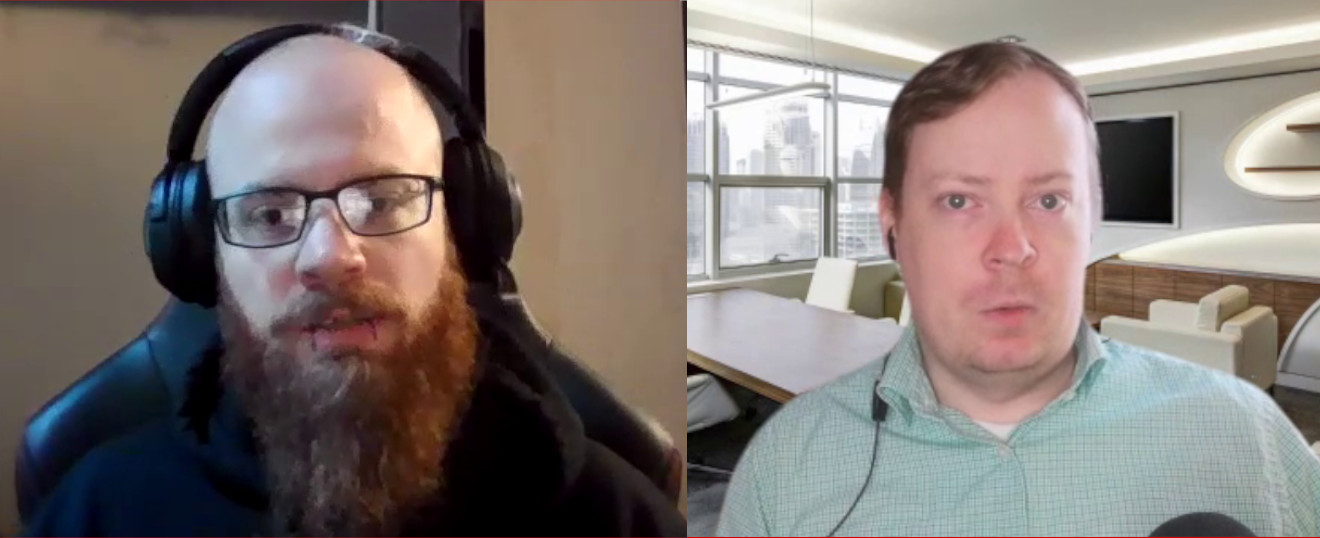In their first podcast episode Steven and William discuss their motivations for asking the age-old question 'Who am I?' and how best to go about their quest of exploring possible paths to an answer.
Watch a Short Excerpt:
Transcript (continued):
Steven: Why we think that having a chat together is worth doing, actually recording and sharing? And that's again because we both like to broaden our perspectives on different subjects, and this is a good platform for doing that.
William: Yeah, I noticed that, well when I had the idea for the podcast I thought who could I do this with, and you're the first and only name that came to my mind. I have had good chats with other people, obviously, but not as consistently. And since we've made an effort to keep in touch since we left Scotland five or four years ago, we have managed to keep in touch every few months at least.
Steven: Well that's pretty impressive when you think about it actually.
William: The meat of our chats has not become less. I feel pretty well understood when I share my thoughts with you.
Steven: Likewise.
William: That's valuable I don't want to leave that.
Steven: Again there's no pressure, no criticism, no judgment when we just chat. Because often when people have discussions it suddenly becomes "right and wrong" or "my views are more important"-type discussion.
William: I especially don't like the phrase "I disagree", because that immediately separates us. When I say that "oh I don't agree" it's like your opinion doesn't matter.
Steven: That is spot on actually. That is what was going for my mind over the last few days about what I wanted to talk about, the fact that people seem to think they can't absorb someone's opinion on something. They feel very strongly that they have to reject it because it conflicts with their own. And that's not how things in my opinion work. Because the more opinions you absorb, again, the more you'll be able to able to understand others. You don't have to believe them. You don't have to agree with them. But you can absorb them and adopt them into your own psyche or soul or whatever you want to call it, so that you understand it their point of view in a way that is, again, loving and not just a dismissal.
William: I think most people are capable of that.
Steven: Definitely.
William: I'm sometimes offended when I hear other people's opinions, and I might need to retreat. But when I feel I'm in a safe place where I can no longer be attacked or put in an uncomfortable conflict situation, then I can process it and not feel threatened that moment. Then I can be more rational about it, which is not always possible in the moment. And that I'm confronted with something, you know, especially when it's a heated discussion which I don't like in general.
Steven: Again there's no need for a heated discussion. It just seems to be something that happens, that suddenly someone gets defensive about a topic. And we forget that you can just pause and go "okay let's stop, it's becoming heated. Let's come back to this. We don't want it to be heated." It's just unnatural, maybe it's our natural defense mechanism kicking in. And that people don't necessarily have that wall in their brains, haven't learned to... Again it takes practice. You know I often got into many a heated discussion in the past because life is an ongoing process, and not being able to go "hang on a minute, take a step back" because I think that's very important in discussions. Just pause, like "okay".
William: Yeah that's what real discussions should be like. It's sad to see in the media, say with political discussions. The channels, the platform's just love controversy and fighting.
Steven: And it's all so quick, it's all so fast. You've got to answer things in two seconds. As I was watching the Joe Rogan show / podcast they had Bernie Sanders on.
William: I saw that.
Steven: So you saw that as well. It was an amazing discussion. And he was discussing, he was talking about, how you have these debates that are just too fast.
William: Yeah they call it a soundbite.
Steven: You don't get time to actually discuss in a nice way your policies.
William: The nuances. There's no room for nuances. And Bernie only had one hour time for Joe Rogan, only. Joe can talk to people for three hours like Jordan Peterson. He loves talking to him. I think he's had him on twice. That's the the number one podcast, I heard.
Steven: Is it? Good. Again, he brings in lots of different perspectives. He doesn't judge, he doesn't condone in that sense. He just hangs out with people.
William: He has an opinion on things: the things he's passionate about. But he can just be diplomatic and really interested in a loving way, like you said. He's respectful, he gets people on all kinds of parts of the spectrum and... what were you going to say?
Steven: Yeah he can listen. He just sits there and every so often he just throws in his little two cents' worth. He's there to see what his guests have to say. And the listeners, he knows the listeners are there for that as well.
William: Someone is not, people are not interested in your opinion until they feel like you're interested in theirs and they feel understood and listened to. It's something I read. I can't really say that from experience a lot. I just try, I try to be aware of other people's opinions and just yeah, it's not easy to give them your attention and understanding. It certainly makes for better relationships.
Steven: Yes. Listening is a difficult skill. I am rubbish at it. I am really bad. I woffle. I am quite happy to, again, discuss this as a topic topic. I'll ask a question or something, and that person will have like 30 seconds, and then I'll be like "oh they said something really interesting" and I'll start going off on one again. And I just like need to learn just to be quiet.
William: Is it an attention thing or do you just love the sound of your own voice?
Steven: Probably. I'm just excited to just share what's going on. Somebody else will say something and I'll just be like "oh!". Something will trigger in my brain that I think is interesting and therefore want to share because I'm worried if I don't say it now it'll be gone. And then I will remember it or something like that. That's probably what's going on. Again, it's subconscious in a way.
William: There are signals like when you take a breath because you want to say something. They will see that, at least most people will be aware of tha. But if they still talk then I think "I guess they believe what they have to say is more important". I think the best conversations are when you're willing to sacrifice what you want to say, and then just adapt to what the other person says. It's not always easy.
Steven: It's not. It's about asking questions as well, isn't it. It's being able to know what questions to ask people when just having discussions. But things like, you know, "what's your opinion?", "how do you feel about this?". Those kind of things. I also think a lot of my woffleness, if that's even a word, comes from spending a lot of time with quiet people.
William: You're a waffle maker.
Steven: Yeah, I'm a waffle maker, it's true. I like it. My brain is a waffle maker.
Other Episodes:
Ep. 51: How Conditioned Are We ?
How much of what you do, think and feel comes from intentional, free chosing? How much of your actions and decisions are pre-programmed? You are the product of your upbringing, culture and genetics. What is out of our control? What can we influence? How can we counteract our predestination?
Ep. 50: What Am I Responsible For ?
Are you taking too little responsibility for your actions, or perhaps too much? How much are you able to understand or determine the consequences of your decisions? Are you in control of anything? Is free will an illusion? Can you do something to improve your thoughts, feelings and relationships with...
Ep. 49: Empathy Can Be A Super Power
Everyone has the choice of either living isolated from other people and their own feelings on the one hand, or to connect with others and their own emotional core. The road towards connectedness involves vulberability and weakness. But it leads to a very rewarding ability that includes deeper understanding of...
Ep. 48: Why Am I Ashamed?
What secrets do you have? What facts about you must never become known to others? What happens in our childhood that implants beliefs in us that hide away for the rest of our life? Can we uncover them deliberately? Can we regain the emotional freedom and levity that playing children...







